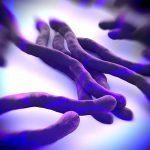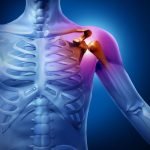Intermittent Fasting “Short-cut” by Upregulating SIRT1 Prove Ineffective
A recent study published in Cell Reports, confirms the long held belief of naturopathic physicians and holistic practitioners that there are NO short-cuts to health. Experiments seeking to mimic the effects of intermittent fasting by increasing the function of surtuin 1 (SIRT1), a key regulatory protein of insulin sensitivity, have not shown favorable results(1).
SIRT1 is a prototype mammalian NAD(+)-dependent protein deacetylase thought to be a key metabolic sensor in various metabolic tissues. Evidence suggests that SIRT1 regulates glucose and lipid metabolism through its deacetylase activity(2). Specifically, SIRT1 improves the insulin sensitivity of liver, skeletal muscle and adipose tissues and protects the function and cell mass of pancreatic β-cells. Calorie restriction (CR) and other intermittent fasting (IF) techniques have been shown to increase expression of SIRT1 (1,3), leading to the speculation that SIRT1 activation could be therapeutically used as a CR-mimetic strategy(1).
Intermittent fasting and calorie restriction have both been shown to be extremely effective at increasing insulin sensitivity, decreasing adiposity, lowering blood pressure, and improving cardiovascular health. However, intermittent fasting and calorie restriction pose significant challenges to patients. The very idea of limiting food consumption is psychologically and emotionally difficult for many. The hope to find new therapeutic targets for the prevention of disease related to insulin resistance, such as metabolic syndrome and type 2 diabetes mellitus, without the need for calorie restriction, has been a driving factor in SIRT1 research.
This current study may be a hint to researchers that diseases of excess are not likely to be cured without removing the excess. Einstein, in his infinite wisdom once said:
“We can’t solve problems by using the same kind of thinking we used when we created them.”
We know that intermittent fasting works, that calorie restriction works, to increase insulin sensitivity, and reverse type two diabetes and metabolic syndrome. It becomes a matter of facilitating these therapeutic options for patients, not circumventing them.
References:
1. Cantó C, Boutant M, Kulkarni SS, et al. SIRT1 Gain of Function Does Not Mimic or Enhance the Adaptations to Intermittent Fasting. Cell Rep. 2016;14(9):2068-75. doi: 10.1016/j.celrep.2016.02.07.
2. Liu Y, Cao Y, Jiang X, et al. SIRT1 and insulin resistance. J Diabetes Complications. 2016;30(1):178-83. doi: 10.1016/j.jdiacomp.2015.08.022.
3. Gomez-Cabrera MC, Zaragoza R, Viña JR, et al. SIRT1 regulation of insulin-signalling pathways in liver, white adipose tissue and pancreas during fasting or calorie restriction. Trends Endocrinol Metab. 2007;18(3):91-2; author reply 93.
 Node Smith, associate editor for NDNR, is a fifth year naturopathic medical student at NUNM, where he has been instrumental in maintaining a firm connection to the philosophy and heritage of naturopathic medicine amongst the next generation of docs. He helped found the first multi-generational experiential retreat, which brings elders, alumni, and students together for a weekend campout where naturopathic medicine and medical philosophy are experienced in nature. Three years ago he helped found the non-profit, Association for Naturopathic ReVitalization (ANR), for which he serves as the board chairman. ANR has a mission to inspire health practitioners to embody the naturopathic principles through experiential education. Node also has a firm belief that the next era of naturopathic medicine will see a resurgence of in-patient facilities which use fasting, earthing, hydrotherapy and homeopathy to bring people back from chronic diseases of modern living; he is involved in numerous conversations and projects to bring about this vision.
Node Smith, associate editor for NDNR, is a fifth year naturopathic medical student at NUNM, where he has been instrumental in maintaining a firm connection to the philosophy and heritage of naturopathic medicine amongst the next generation of docs. He helped found the first multi-generational experiential retreat, which brings elders, alumni, and students together for a weekend campout where naturopathic medicine and medical philosophy are experienced in nature. Three years ago he helped found the non-profit, Association for Naturopathic ReVitalization (ANR), for which he serves as the board chairman. ANR has a mission to inspire health practitioners to embody the naturopathic principles through experiential education. Node also has a firm belief that the next era of naturopathic medicine will see a resurgence of in-patient facilities which use fasting, earthing, hydrotherapy and homeopathy to bring people back from chronic diseases of modern living; he is involved in numerous conversations and projects to bring about this vision.










